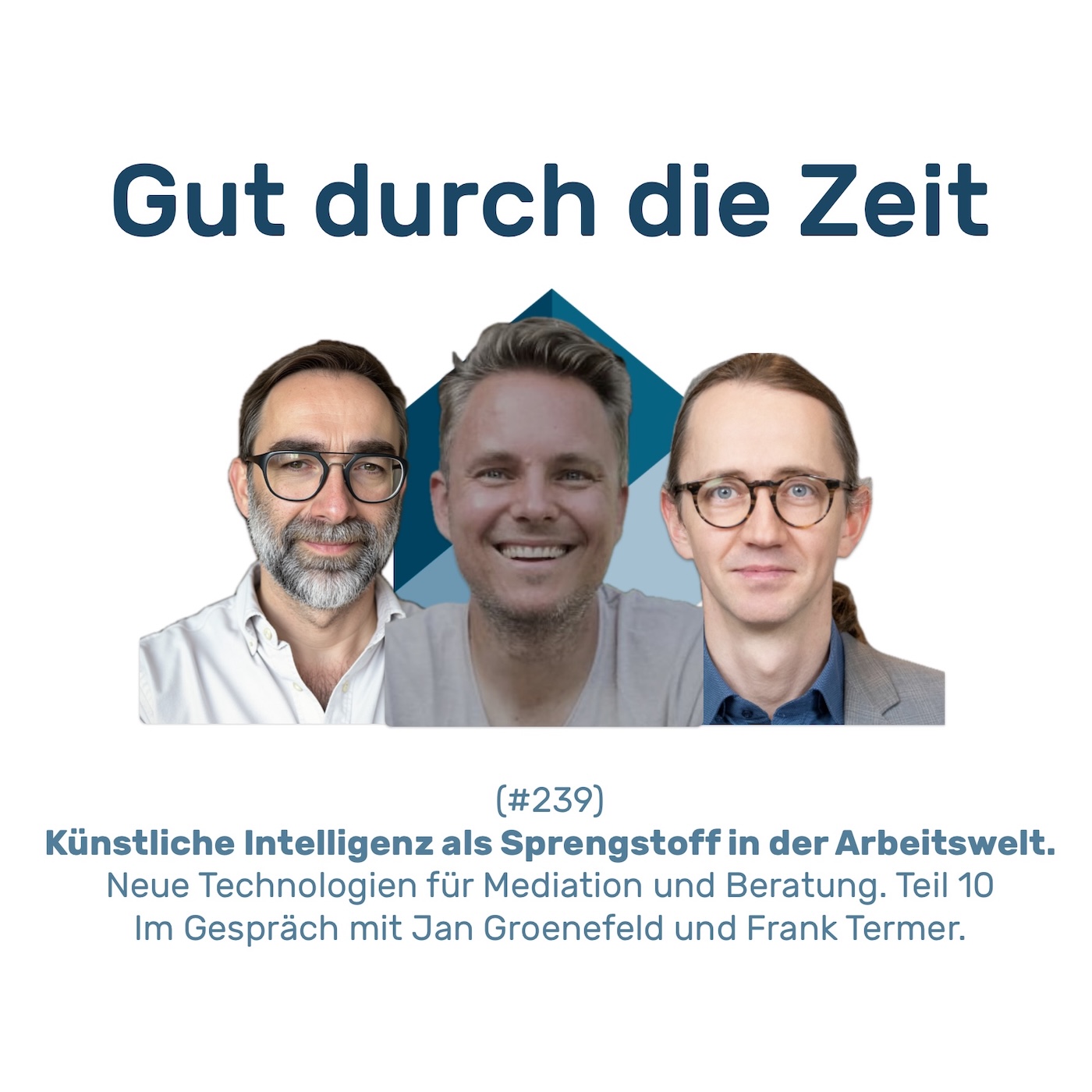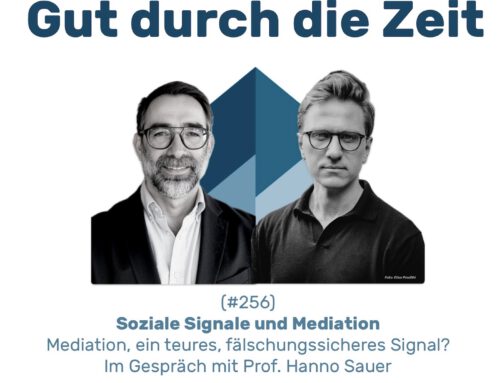INKOVEMA Podcast „Well through time“
#239 GddZ
Artificial intelligence as an explosive in the world of work
Is AI the whipped intern in the team that nobody likes?
In conversation with Jan Groenefeld and Dr Frank Termer
Dr Frank Termer: Doctorate in business informatics; mediator and conflict moderator; expert for difficult conversations in the digital transformation, association officer (BITKOM) until 2025
Jan Groenefeld: Graduate computer scientist; Chief Product Officer and AI expert at Rote Robben GmbH.
Small series: New technologies for mediation and conflict counselling. Part 10
If these niches then take hold for the masses and are improved, they sweep away the old markets. At this point, however, the once successful companies have missed the technological boat.
Contents
Chapter:
detailed summary
In this episode of the podcast "Gut durch die Zeit", I, Sascha Weigel, together with my studio guests Frank Termer and Jan Croenefeld, take a look at the challenges and opportunities in the world of work in the context of new technologies, in particular artificial intelligence (AI). We discuss how current technological developments act as explosives for the world of work and what social and individual effects they bring with them.
Based on the premise that digitalisation has particularly shaped the interface between humans and technology, Frank sheds light on the need to design systems in a human-centric way. Jan, with his background in human-computer interaction, shares his insights on how people react to new technologies and which critical questions are relevant in this context. In particular, he addresses the question of what new technologies mean for the individual professional field and what value they actually bring.
A central topic of our discussion is the effect of AI on the perception of human competence. We realise that artificial intelligence is often perceived with exaggerated expectations, leading to a Dunning-Kruger effect: Where people overestimate their abilities and falsely categorise the technology as superior. Jan emphasises that AI only serves as a supporting tool and not as a substitute for human creativity and expertise.
In the course of the conversation, we also discuss the social challenges arising from the use of AI: Is there a risk of uniformisation in the quality of work? And how do we deal with the fear of being replaced by AI? We will shed light on the importance of technological understanding and a proactive approach to AI in order to overcome fear and recognise opportunities.
We conclude by considering how we can build a symbiotic relationship between humans and machines. We encourage the audience to actively engage with this technology to realise the benefits for themselves, rather than being driven by fear. The goal should be to see AI as a coach that supports you in your personal and professional development.
In the final round, we emphasise the urgency of dealing with these topics and set ourselves the goal of continuing this discussion in future episodes. The exchange opens up the field for numerous questions and shared insights, and we look forward to the next episode, in which we will delve deeper into the subject matter.
Complete transcription
(AI-generated)





Leave A Comment